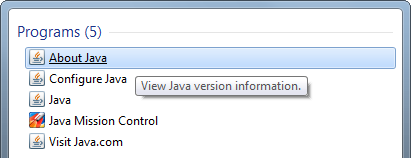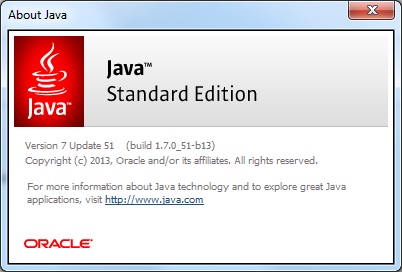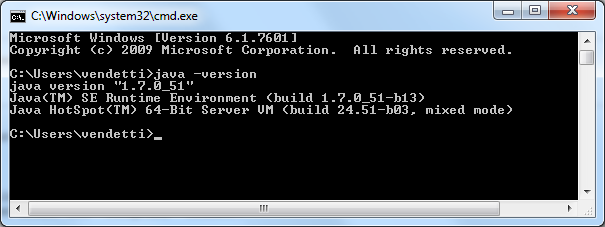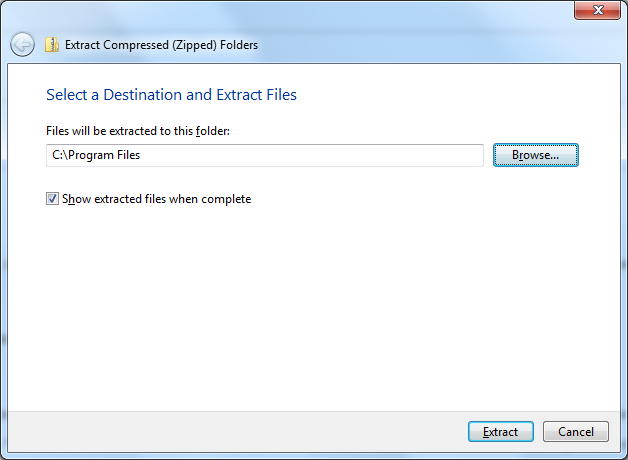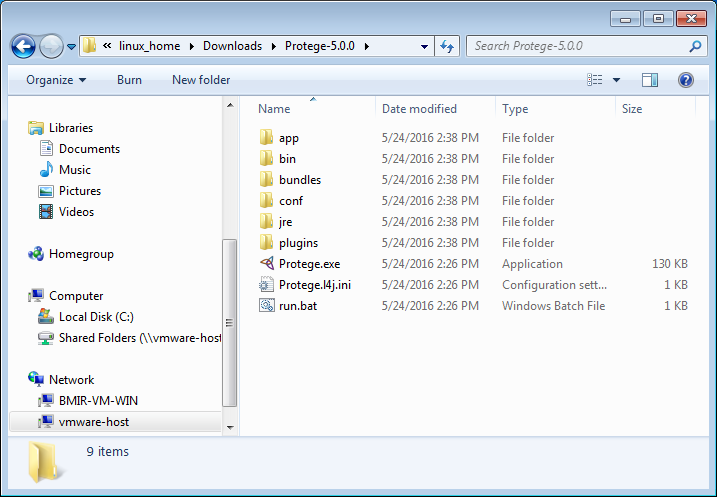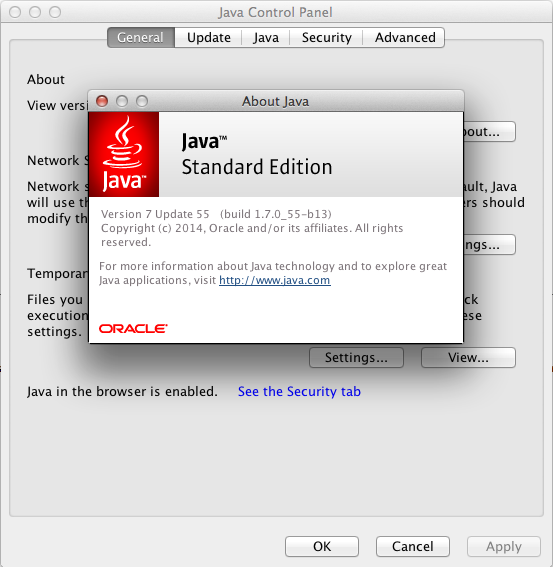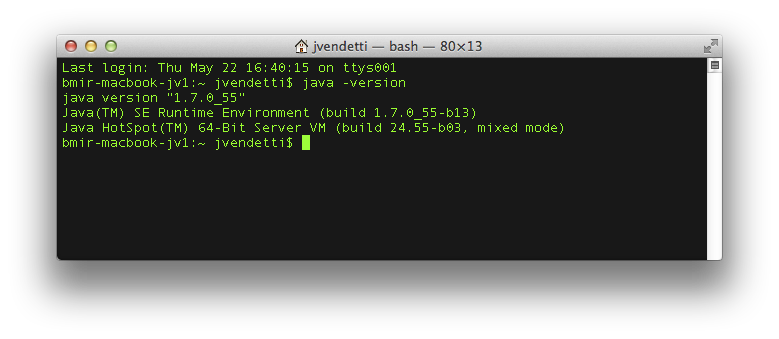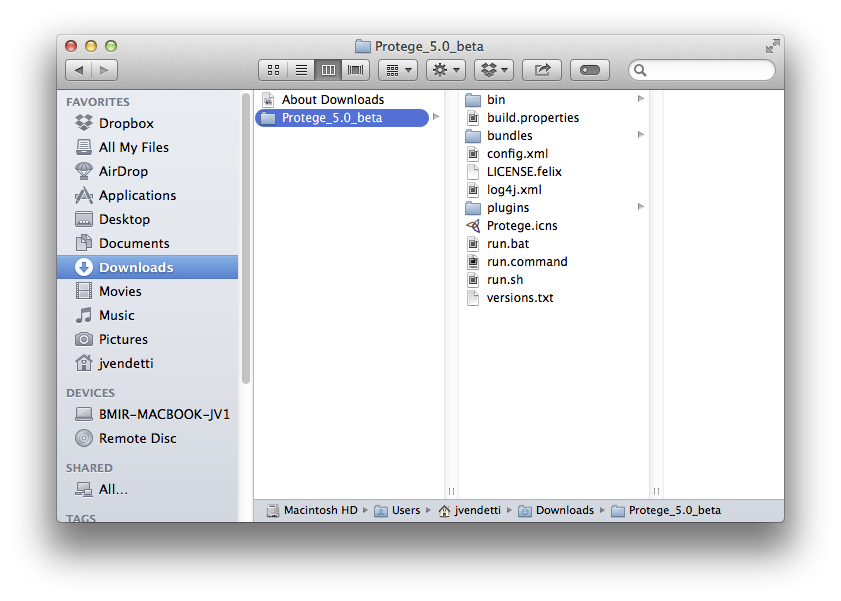Difference between revisions of "Install Protege5"
m |
|||
| Line 120: | Line 120: | ||
=== Launch Protege === | === Launch Protege === | ||
| − | To launch Protege Desktop, double-click the run.command file in the root directory of the installation (Applications/Protege_5.0_beta/run.command). | + | To launch Protege Desktop, double-click the <code>run.command</code> file in the root directory of the installation (<code>Applications/Protege_5.0_beta/run.command</code>). |
== Linux and Unix-like == | == Linux and Unix-like == | ||
| − | Protege 5.0 is distributed in the form of a tar.gz file and requires Java 7. | + | Protege 5.0 is distributed in the form of a <code>tar.gz</code> file and requires Java 7 or later. |
| − | Please consult the documentation for your Linux distribution on how to install Java. Usually, you can install [http://openjdk.java.net/ Open Java] easily from the package manager of your Linux distribution (e.g, | + | Please consult the documentation for your Linux distribution on how to install Java. Usually, you can install [http://openjdk.java.net/ Open Java] easily from the package manager of your Linux distribution (e.g., <code>apt-get</code> in Ubuntu and Debian distributions, <code>yum</code> in RedHat ). You may also use other Java implementations, such as [http://www.oracle.com/us/technologies/java/overview/index.html Oracle Java]. |
| − | For Ubuntu, you can find the installation instructions for different Java implementations [https://help.ubuntu.com/community/Java here]. For RedHat, | + | For Ubuntu, you can find the installation instructions for different Java implementations [https://help.ubuntu.com/community/Java here]. For RedHat, the installation instructions for Open Java are [https://access.redhat.com/site/documentation/en-US/JBoss_Enterprise_Application_Platform/6/html/Installation_Guide/Install_OpenJDK_on_Red_Hat_Enterprise_Linux.html here], and for Oracle Java [https://www.java.com/en/download/help/linux_x64rpm_install.xml here]. General Oracle Java installation instructions for Linux distributions are [http://docs.oracle.com/javase/7/docs/webnotes/install/linux/linux-jdk.html here]. |
=== Check for Java 7 (optional) === | === Check for Java 7 (optional) === | ||
| Line 142: | Line 142: | ||
(The version should be 1.7 or later) | (The version should be 1.7 or later) | ||
| + | |||
| + | === Download the tar.gz file === | ||
| + | * Go to the [http://protege.stanford.edu/products.php#desktop-protege Products page] on the Protege website. | ||
| + | * Click the "Download for Linux" button to download the tar.gz file to your machine. | ||
Revision as of 21:35, May 27, 2014
Protege Desktop 5.0 Beta Installation Instructions
Please refer to the specific installation instructions for your platform.
Contents
Windows
Protege Desktop 5.0 beta is distributed in the form of a ZIP file and requires Java 7.
If you already know that Java 7 is installed on your Windows machine, skip to next section on downloading the ZIP file.
If you check for Java 7 and determine that you don't have Java installed on your Windows machine, please refer to the Oracle Java website for download and installation instructions. After installing Java 7, proceed to the next section on downloading the ZIP file.
Check for Java 7 (optional)
This step is optional. Perform this step, if you are not sure if you have Java 7 or later installed on your computer.
There are several possible ways to check your Java version on Windows.
- Click the Windows Start button.
- Type "Java" in the "Search programs and files" text box.
- Select "About Java" from the results listed under the "Programs" header:
Selecting About Java will display a dialog with your Java version:
From the Command Prompt
- Click the Windows Start button.
- Type "Command Prompt" in the "Search programs and files" text box.
- Select "Command Prompt" from the results list to launch the Command Prompt application.
- Type "java -version" at the prompt to view your Java version:
From the Java Control Panel
Detailed instructions for determining your version of Java via the Java Control Panel are available on the Oracle Java website.
Download the ZIP file
- Go to the Products page on the Protege website.
- Click the "Download for Windows" button to download the ZIP file to your machine.
Unzip Protege
Once the download completes, navigate to the folder where the ZIP file was downloaded. On a Windows machine, this will typically be your "Downloads" folder, e.g., "C:/Users/<your-username>/Downloads".
Right-click on the ZIP file and choose "Extract All..." from the context menu to launch the Extract Compressed Folders dialog. Click the Browse... button to select a destination for your Protege Desktop installation, e.g., the "C:/Program Files" folder:
Protege Desktop will be extracted to your selected destination into a folder called "Protege_5.0_beta":
Launch Protege
To launch Protege Desktop, double-click the run.bat file in the root directory of the installation.
For quicker access to Protege Desktop going forward, right-click on the run.bat file and select "Send to" -> "Desktop (create shortcut)". This will create a shortcut to Protege Desktop's launcher on your Windows Desktop called "run.bat - Shortcut". Select the shortcut and press the F2 key to rename the shortcut to something more user friendly, e.g., "Protege 5.0 beta".
Mac OS X
Protege 5.0 is distributed in the form of a ZIP file and requires Java 7.
If you already know that Java 7 is installed on your Mac, skip to next section on downloading the ZIP file.
If you check for Java 7 and determine that you don't have Java installed on your Mac, please refer to the Oracle Java website for download and installation instructions. After installing Java 7, proceed to the next section on downloading the ZIP file.
Check for Java 7 (optional)
This step is optional. Perform this step, if you are not sure if you have Java 7 or later installed on your computer.
There are several ways to check for Java 7 on your Mac.
From the Java Control Panel
- Click the Apple icon in the upper left of the screen.
- Choose System Preferences...
- Click the Java icon to bring up the Java Control Panel.
- On the General tab, click About... to see your Java version number:
From the Terminal
- Open Finder.
- Go to Applications -> Utilities.
- Double-click the Terminal application.
- At the prompt, type "java -version" to see your Java version number:
Download the ZIP file
- Go to the Products page on the Protege website.
- Click the "Download for Mac OSX" button to download the ZIP file to your machine.
Move Protege to Applications
- Once the download completes, navigate to the folder where the ZIP file was unpacked. On a Mac, this will typically be your "Downloads" folder:
Drag the Protege_5.0_beta folder to the Applications directory.
Launch Protege
To launch Protege Desktop, double-click the run.command file in the root directory of the installation (Applications/Protege_5.0_beta/run.command).
Linux and Unix-like
Protege 5.0 is distributed in the form of a tar.gz file and requires Java 7 or later.
Please consult the documentation for your Linux distribution on how to install Java. Usually, you can install Open Java easily from the package manager of your Linux distribution (e.g., apt-get in Ubuntu and Debian distributions, yum in RedHat ). You may also use other Java implementations, such as Oracle Java.
For Ubuntu, you can find the installation instructions for different Java implementations here. For RedHat, the installation instructions for Open Java are here, and for Oracle Java here. General Oracle Java installation instructions for Linux distributions are here.
Check for Java 7 (optional)
This step is optional. Perform this step, if you are not sure if you have Java 7 or later installed on your computer.
To check that you have Java installed, open a terminal window, and type: java -version. You should see something like this:
myuser@mycomputer:/$ java -version java version "1.7.0_51" OpenJDK Runtime Environment (IcedTea 2.4.4) (7u51-2.4.4-0ubuntu0.13.04.2) OpenJDK 64-Bit Server VM (build 24.45-b08, mixed mode)
(The version should be 1.7 or later)
Download the tar.gz file
- Go to the Products page on the Protege website.
- Click the "Download for Linux" button to download the tar.gz file to your machine.
